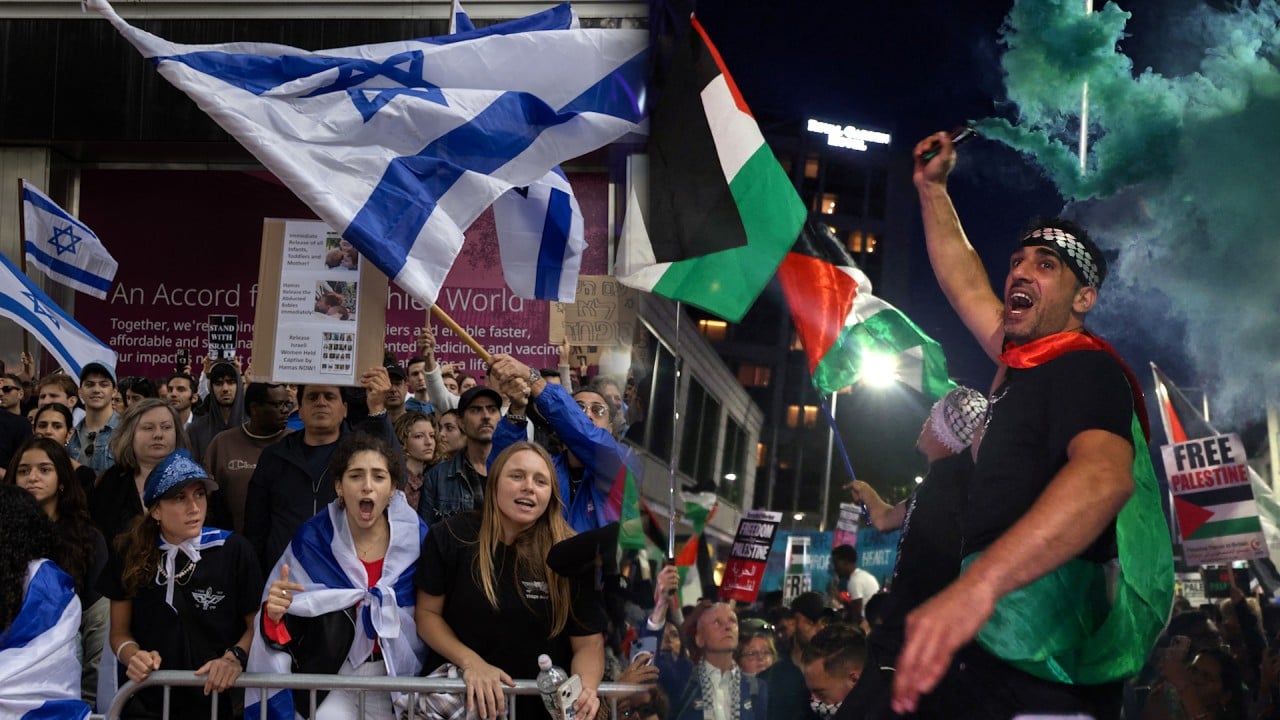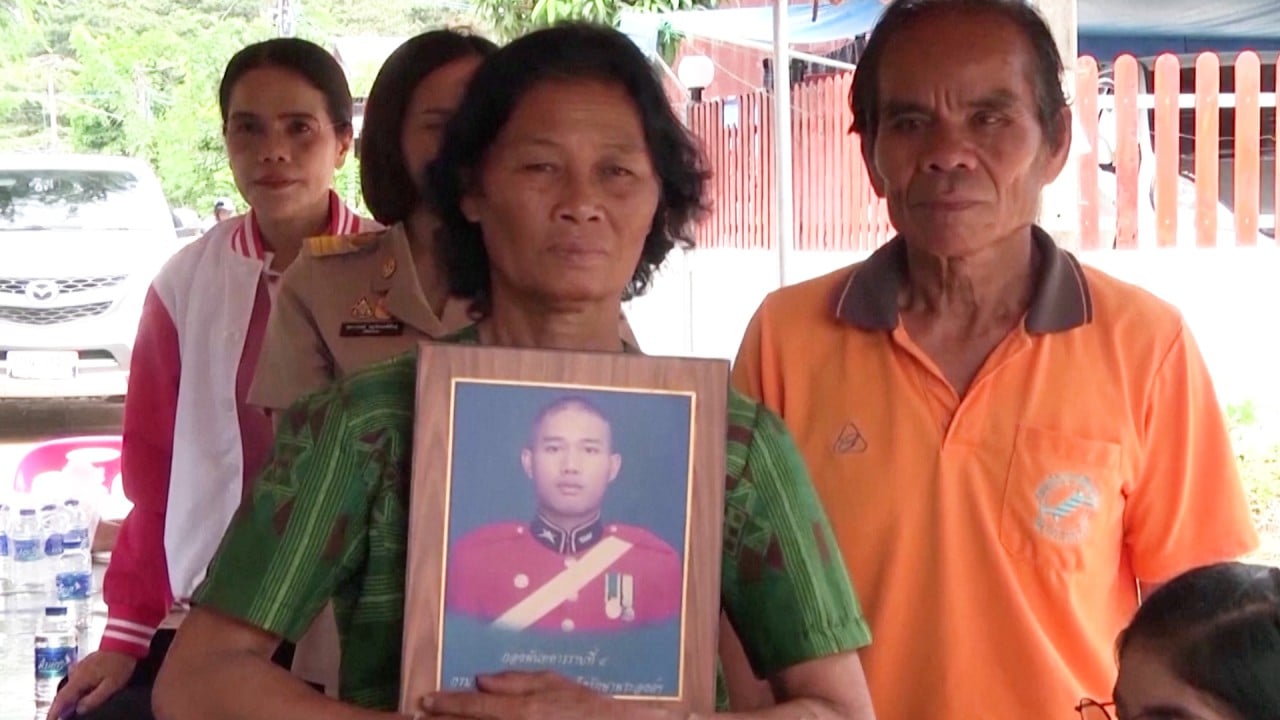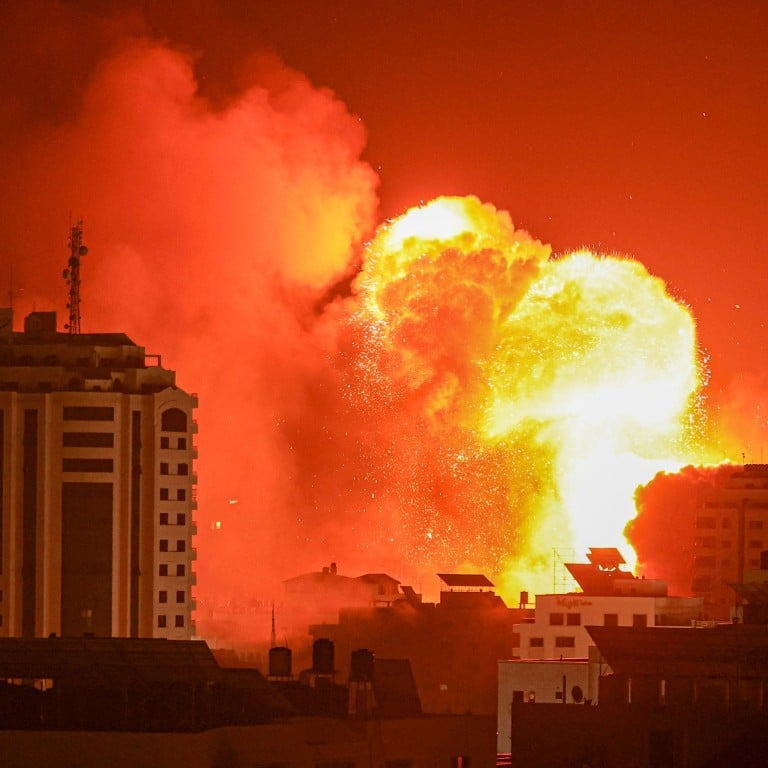
Explainer | Could the Israel-Gaza war become multi-front involving Iran and Hezbollah?
- The conflict could spread to the West Bank and Israel’s border with Lebanon where Hezbollah operates, analysts say
- Diplomatic efforts to stop the conflict are unlikely to succeed for now with Israel and Hamas bent on escalation
Despite intense diplomatic consultations between all of the region’s powers, there is scant hope among seasoned Middle East observers that Israel’s furious reaction will be limited to air strikes on the densely-populated Gaza Strip ruled by Hamas.
Israel-Gaza war divides Southeast Asia as trade, religion determine responses
Here are three things you need to know about the Israel-Gaza war and its implications.
Can regional diplomacy stop the Israel-Gaza war?
But Middle East-focused analysts doubt that any of these diplomatic efforts would bear fruit.
“It’s unlikely,” said Hussein Ibish, a senior resident scholar of the Arab Gulf States Institute in Washington.
“Israel seems traumatised and bent on revenge, while Hamas appears intoxicated with a false sense of victory and accomplishment.”
It is improbable that “any country or set of arguments will be able to convince the Israelis not to try to smash Hamas as much as possible”, he said.
Negotiated settlement the only answer to Israel-Gaza war
Monica Marks, a professor of Middle East politics at New York University Abu Dhabi, said the Hamas attack has “heightened Israelis’ pre-existing siege mentality”.
The Hamas attack is pushing many Israelis “to think now more than ever that militarised repression of Palestinians is the only way forward”, she said.
Most Israelis are “huddled in deep anger and grief”, trying to process the terrors of the Hamas attack and vowing that “only a militarised response of disproportionate magnitude the likes of which Gaza has perhaps never seen” can restore security in a weakened and fragile Israel, Marks said.
Nir Boms, a research fellow at the Dayan Centre for Middle Eastern and African Studies in Tel Aviv, said it is “evident that the problem called Hamas needs to be addressed in a different way than previously done”.
“I do not see the regional partners bringing solutions that could change the equation that needs to be changed,” he said.
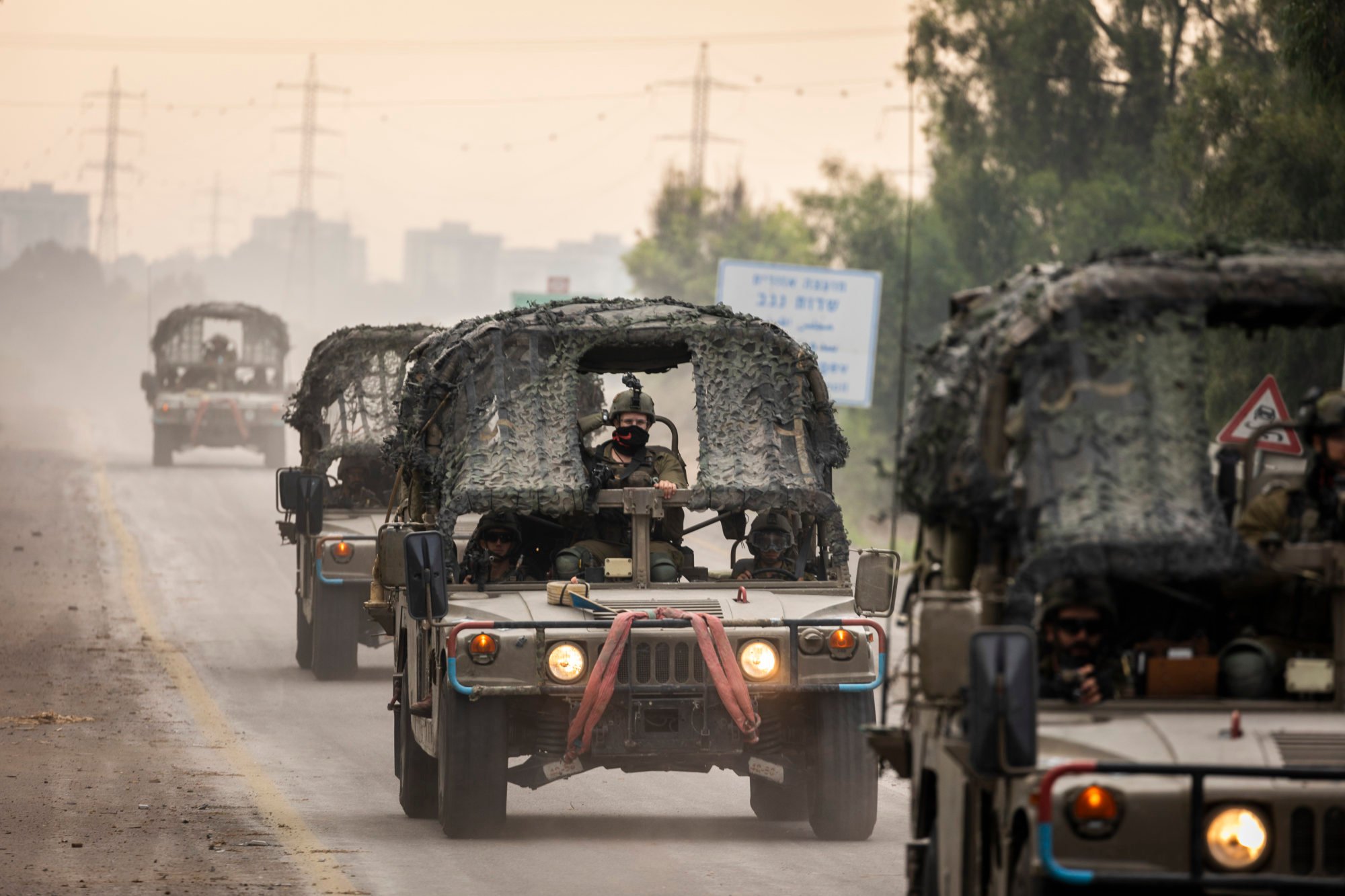
Could the conflict spread to neighbouring countries?
Fighting between Hezbollah and Israel along the border with Lebanon has gradually escalated since the two sides exchanged mortar and artillery fire on Sunday.
Three Hezbollah fighters were killed by Israeli shelling on Monday, after two militants of its ally the Palestinian Islamic Jihad group infiltrated across the border on the same day. Israeli forces said they had killed the infiltrators.
“Iran, which is clearly behind Hamas’ attack on Israel, is in direct control of Hezbollah, which it holds as a trump card in its proxy wars with Israel,” Ibish said.
“There’s every possibility that Iran could unleash Hezbollah” to plunge Israel into a multi-front war, particularly if the violence spreads first into the West Bank and occupied East Jerusalem, “which is clearly one of the primary goals of the attack”, he said.
Michael Young, a senior editor at the Carnegie Middle East Centre in Beirut, said events in Gaza showed “Iran’s hostile takeover of the Palestinian cause”.
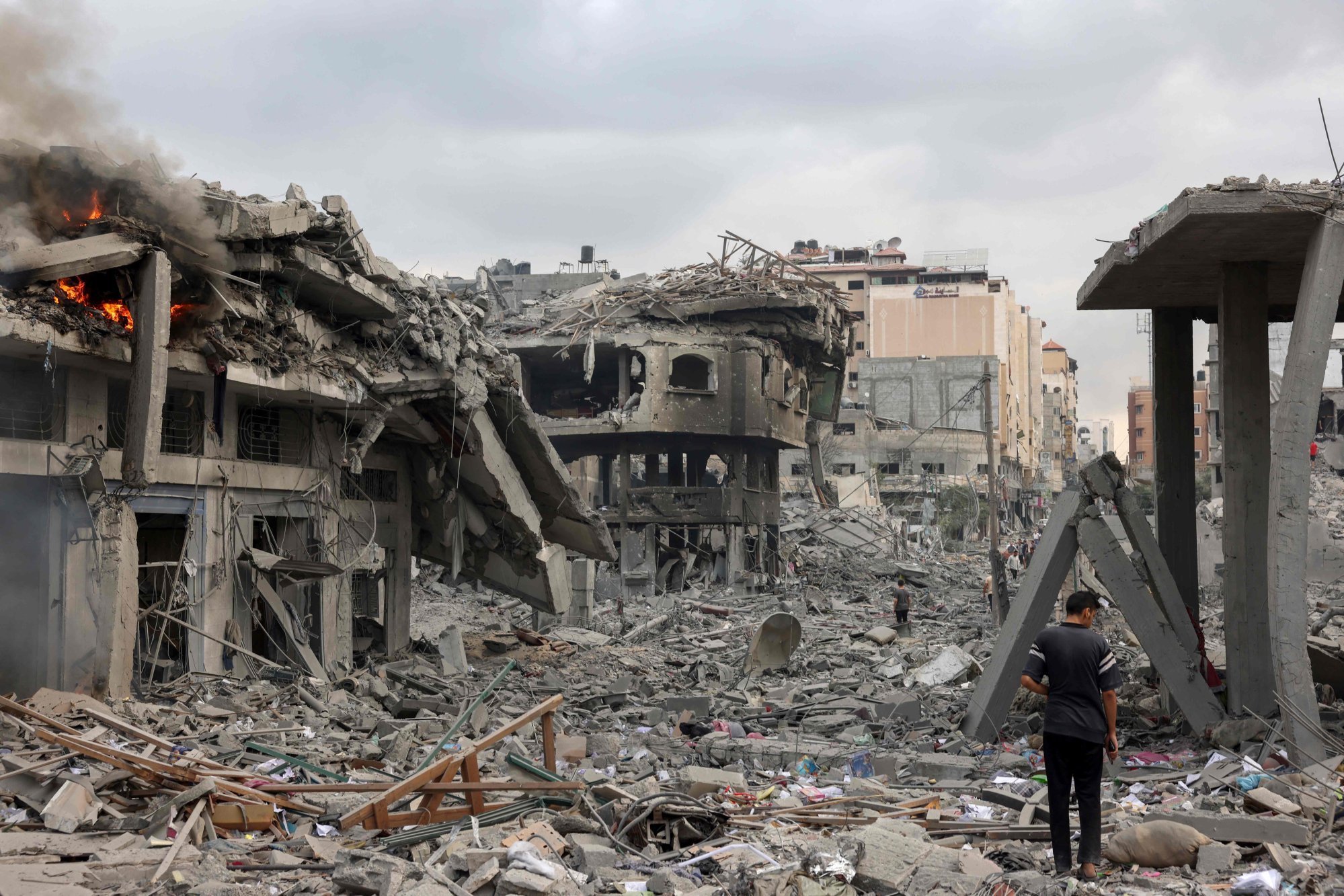
“There seems little doubt that Hamas’ tactics were coordinated with Iran and Hezbollah,” he said in a paper published by the think tank on Sunday.
Contacts between Hezbollah, Hamas, and Islamic Jihad have been “highly visible in recent months”, as senior leaders of the two Palestinian organisations are now based in Beirut.
By planning such a devastating operation against Israel, “all these parties have provided an alternative model to that of the hapless Palestinian Authority”.
Hezbollah on Sunday fired mortars on Israeli military positions in the Shebaa Farms, a sliver of occupied territory located at the trijunction with the Syrian border. Israel responded in kind, but no fatalities were sustained by either side.
Observers noted that Hezbollah had refrained from targeting northern Israel, thereby not escalating their existing stand-off.
Nonetheless, the US responded within hours by ordering an aircraft carrier to sail near the Levantine coast so as to deter Hezbollah.
“If Hezbollah enters the conflict, Israel will face a countrywide war it has not experienced in decades,” said Jonathan Panikoff, director of the Scowcroft Middle East Security Initiative at the Atlantic Council and a former deputy US national intelligence officer for the Near East.
He said there have been warnings about the potential for a multi-front war “for years”.
“If this is the beginning of one, the potential death and destruction may top anything we’ve seen in decades,” he said, in comments published by the Atlantic Council on Saturday.
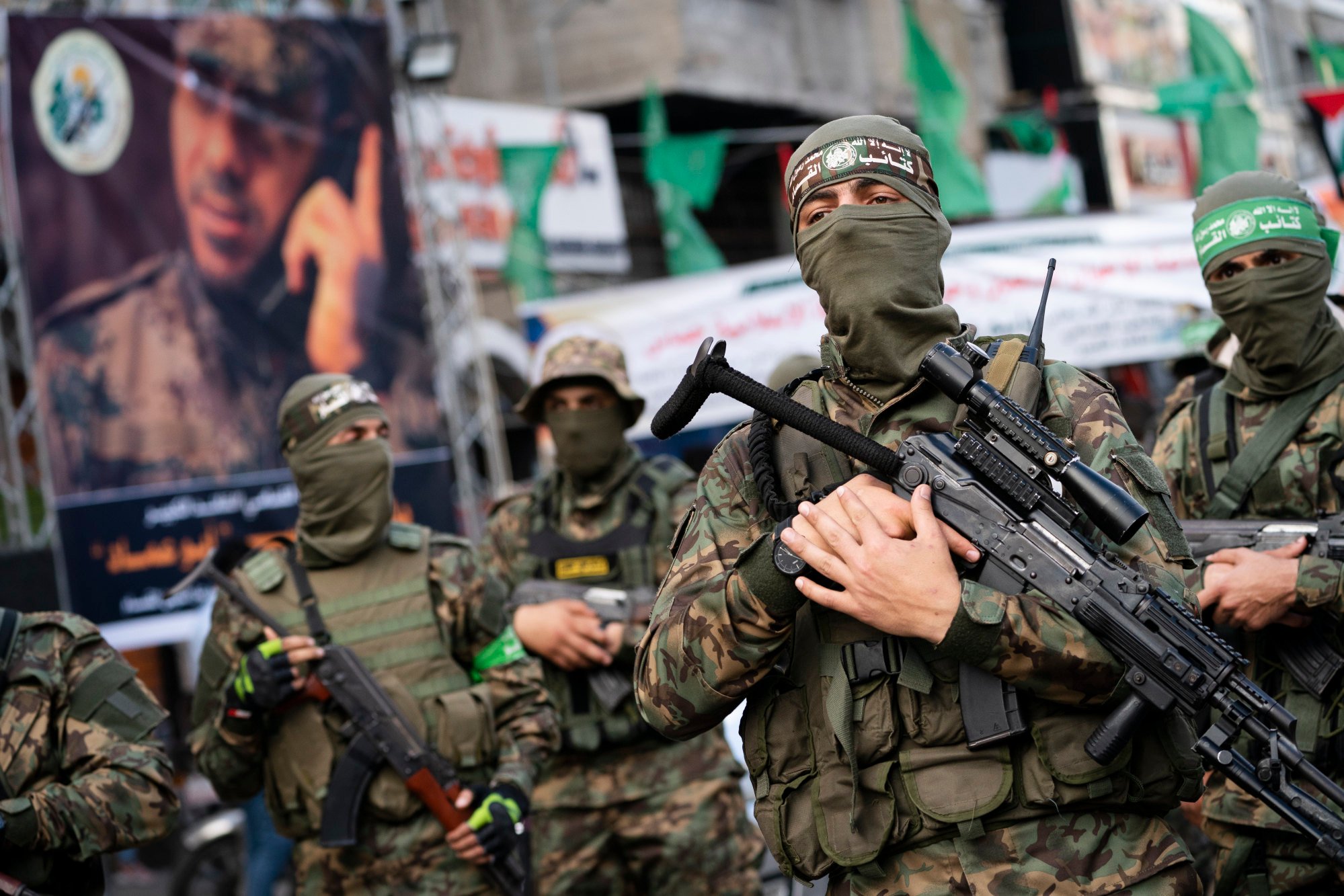
Raz Zimmt, a research associate of the Alliance Centre for Iranian Studies at Tel Aviv University, said “it is necessary to distinguish” between Iranian support to Hamas – as well as the ongoing coordination between Iran’s Revolutionary Guard and other members of the Resistance Front like Hezbollah – and the “initiative, organisation, and execution of the Hamas operation”.
While “there is no doubt” about the military cooperation between Iran and Hamas and Tehran’s increasing involvement in the Palestinian arena, including the West Bank, in recent years, “I highly doubt whether Iran was significantly involved” in Hamas’s latest action, he said in comments posted on the social media platform X on Tuesday.
“This is a Palestinian story. It is an action by Hamas based on its own interests arising from the Palestinian reality.”
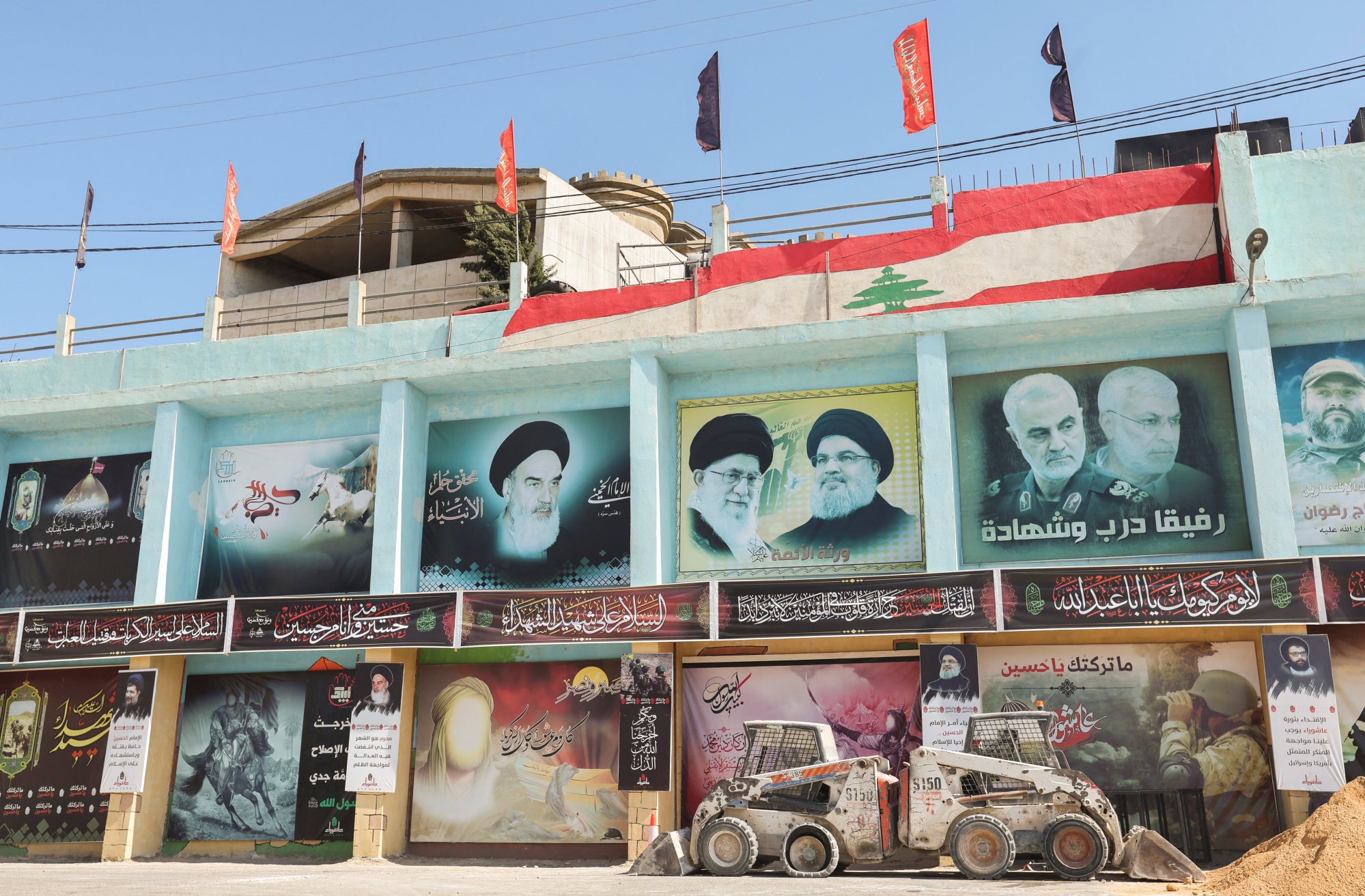
Could it spark a war between Israel and Iran?
In the event that Israel does find itself in a multi-front war with numerous Iranian proxy groups in Gaza, the West Bank and East Jerusalem, and Lebanon, “Israel could decide to take the conflict to its source”, Ibish said.
“That would mean attacking the sponsors and patrons of these groups by striking inside Iran.”
“In a sense, this is what Iran itself has done” by using Hamas to strike inside Israel because of Israel’s huge military prowess and strikes against Iranian assets, installations and proxies in Syria and even Iraq, he said.
Israeli and US government spokesmen have said no evidence of Iranian involvement in Hamas’ military operation has so far surfaced.

Like Iran and its allies, Israel has conducted “very effective actions of sabotage and assassination” inside Iran itself during the shadow war these countries have been engaged in for about a decade, Ibish said.
The scope and effectiveness of the Hamas attack on Israel may “bring that shadow war into the open”, he said.
Tehran might choose to ignore limited Israeli strikes, he said, but if assaults on Iranian territory are protracted or damaging enough, Iran “might well feel compelled to retaliate more openly as well in some manner or another”.
So the circumstances that “exist on the ground now contain all the elements that could result in an Israeli-Iranian war”, Ibish said.
Hamas terrorism must be condemned, but Israel’s response will cost more lives
Zimmt said Iran has hitherto shown no interest in expanding the conflict between Israel and Hamas to other arenas “through active participation by itself and [has instead involved] mainly Hezbollah” during previous occasional rounds of warfare between Israel and Hamas.
But the Hamas operation is a “reality-changing event in the Middle East” that may oblige Iran to move from the phase of ongoing support and coordination to “a more direct involvement”, especially if the Israeli response poses a significant challenge to Hamas.
He said Iran has also been more committed to increasing its involvement around Israeli borders, and even inside Israel, and “perhaps is also prepared to pay a higher price for a possible [direct] confrontation with Israel”.
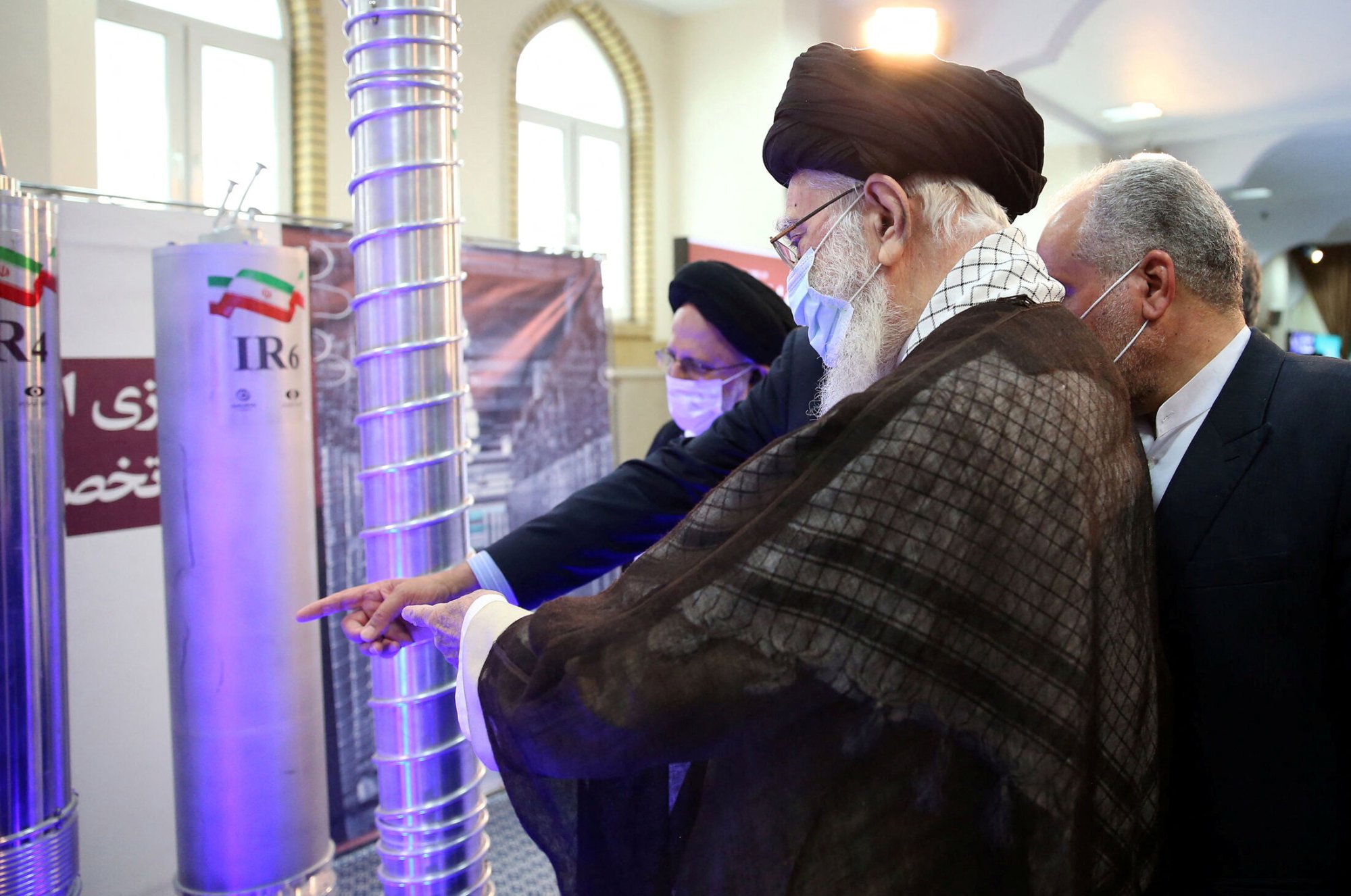
Zimmt said Iran is not currently concerned with the possibility of Israeli military action, except in the game-changing scenario of Tehran deciding to make nuclear weapons.
“Tehran may assess that using Hezbollah is no longer considered a waste of capabilities but a justified way to advance its strategic vision at the most convenient time,” he said.
Even assuming that Iranian involvement in the implementation of the Hamas operation was not significant, “I believe that the danger of escalating into an event involving Iran and Hezbollah has increased significantly”, Zimmt said.


